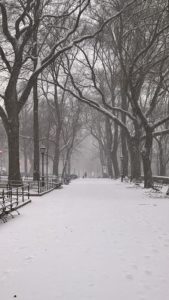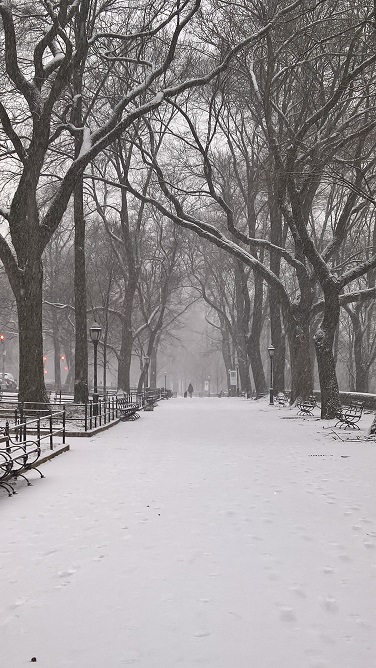“What is it about you Americans?” a friend in New Zealand said to me a few months ago, “Why are you so resistant to the common good?” The state of panic, fomented by some presidential candidates, reminds me of that statement. Inclusive conversations are defined as conversations where differences are leveraged as a resource, not a threat. For this issue, I’m addressing practicing inclusion for our common good.
What is the “common good?” It is something that affects all of us humans as human. Right now, the political landscape has become polarized because it is fear-driven, it helps us forget that we have anything in common. People rush to push others away in order to offer an illusion of protection. If only I can live in a box, and protect my box, I’ll be fine. Let’s just make the box bigger, stronger, let fewer people in. It is an illusion. We have forgotten that human beings cannot live in a box. We are human, we cannot live outside of communities.

Besides an organizational consultant, I am also a Reiki practitioner and teacher. Reiki is healing energy that fosters balance and relaxation in the body. It helps relieve pain, anxiety, stress, and depression. In the past 14 years as a Reiki practitioner, I have treated people at mental health, recovery, and AIDS clinics, homeless shelters, and privately. I have treated: social workers and managers, homeless and professionals, people with mental health challenges and recovering from addiction, old and young, rich and poor, republicans, democrats, independents, socialists and anarchists, formally educated and not, veterans and pacifists, from the United States and other places in the world. People generally come to me because their body is hurting, and they’ll do anything to try to make it feel better, even if they don’t believe in Reiki. Reiki brings emotional healing and peace too, but most people don’t believe or care about that in the beginning of treatment. They just want their head, knee, back, sciatica pain to go away. Doing Reiki has taught me about the common good.
There is one thing that I know all human beings have in common: a yearning to connect and be seen, appreciated, and loved. When I hold my hands over someone where they feel pain, I sometimes see images, like photographs stored in their body. My hands become the darkroom for these pictures to come to light. More frequently than not, those images are moments of separation or isolation. A man stopped by the police terrified his family would have nothing to eat if they locked him up. A mother and daughter fighting. The shame of abortion, 50 years later. An old friend walks away after a misunderstanding. A lover surprised with someone else. The immigration police knocking on one’s door.
The most frequent image I see is that of rejection. The personal feels excluded, or unloved, because they feel they do not belong they:are schizophrenic or schizoaffective, alcoholic or drug user, homeless or mentally vulnerable, Black or Latino, have four toes or three nipples, are too fat or too skinny.
As a sociologist, it is so blatant to me that the rise in shootings in the USA and the world is connected to this increased sense of exclusion and fear. Durkeim in 1897, called it anomia, a social cause of suicide. Durkheim said that when social norms change too quickly, as they often do in the post-industrial world, some feel a sense of disconnect and alienation from societal norms, they take their lives to react. I believe that currently, the sense of exclusion is so high, for some as individuals, for others as a group, that many are willing to take their own lives and the lives of others to just be able to end the pain that they feel inside. So to me, it is clear that the rising violence originates from the pain of exclusion, whatever the politics. Hurt people hurt people.
It’s so easy to hate this or that politician, take your pick. It’s much harder to love and talk with your neighbor or family member on the other side of any controversial argument and have a conversation and stay open mind and heart. When we shut down we ultimately hurt ourselves, and store the sense of isolation into our bodies as pain. While we struggle to find legal agreements and long-term solutions, let us not forget the greatest antidote to violence is love, connection, and community. Especially when connectedness and openness takes courage. For when we feel loved, embraced, and connected in community, we safeguard it. So what we do for the common good benefits ourselves as individuals, too.
Our weapons are way too advanced for how immature we are at love. We say “I love you,” but can turn it quickly into hate. It’s harder to love when we are scared, stay loving and open when we are angry, when we are terrified. There is no other option for us to survive as a species.

What if each of us today took someone who has outrageous beliefs and accepted or listened to the story that gave life to them? What if we stepped through the illusion of fear focused on our common good? Societies that pay more attention to the common good are a lot less violent than ours. We must begin to value and invest in our common good. Our survival as a country and a species depends on our ability to learn how to do so.
Photo credit: Louis Waweru
ITALIAN VERSION

